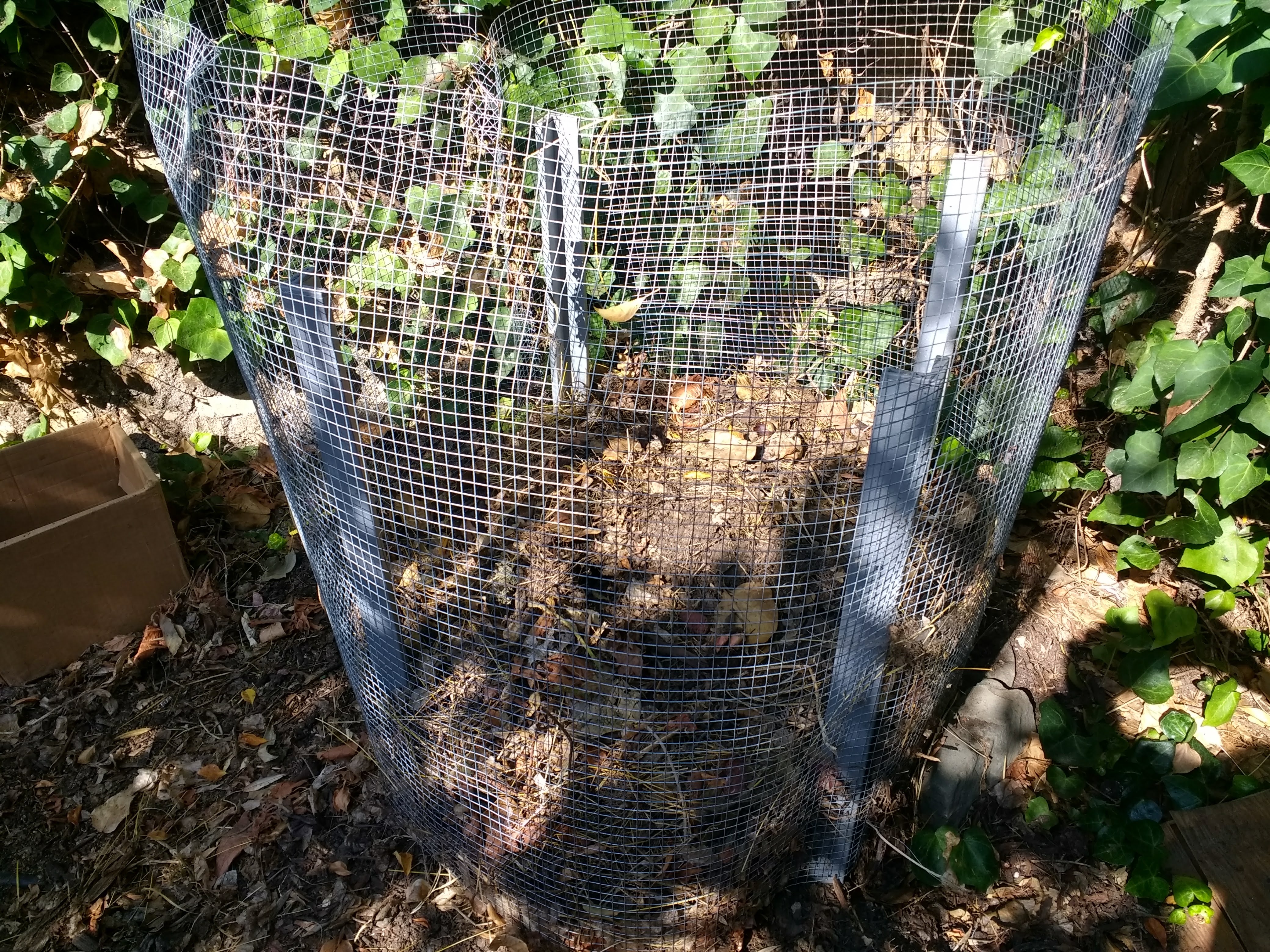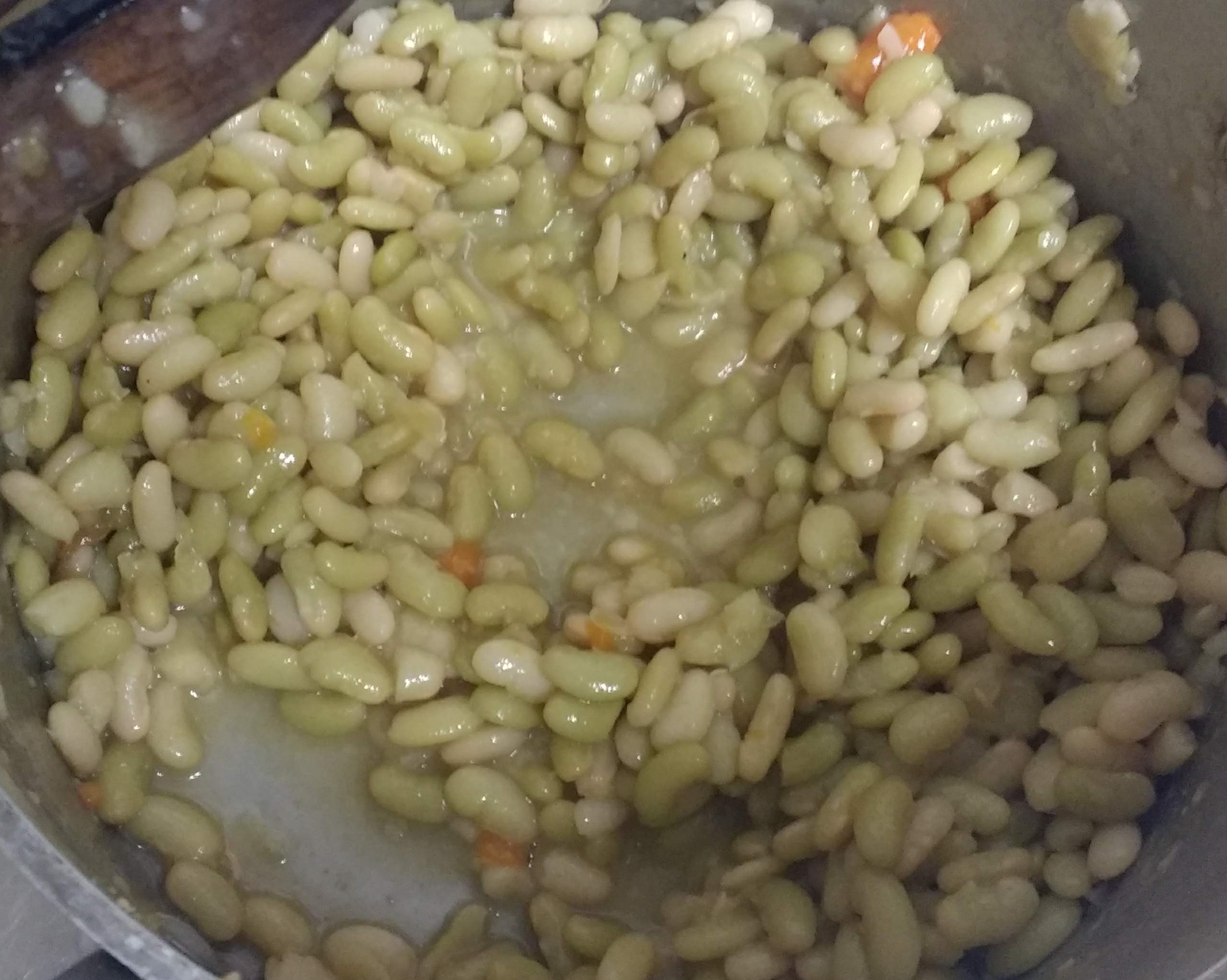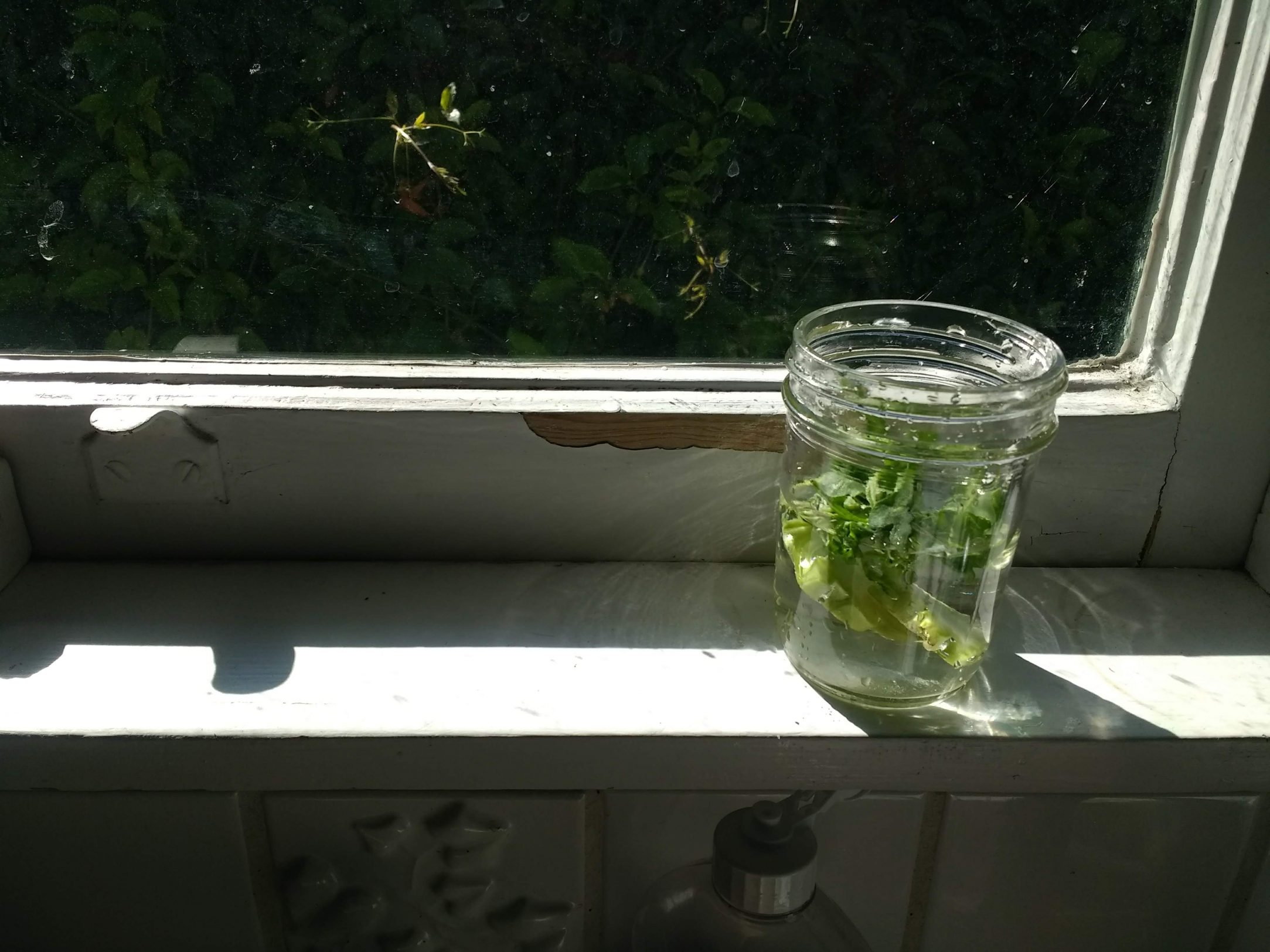I have forgotten many things while cooking.
For example: I often leave the beans simmering in water that—once I’ve added too much of the crucial ingredient, time—boils away completely, leaving a gluey-flakey charred crust, smoldering and awful. I am very capable of leaving a partially-cooked potato to languish inside the microwave for days, and rice can stay in the cooker long past its returning to a kind of evil version of its pre-cooked crunch, crusty and brown. There has been many a slice of bread that—having made the grand transition into toast—missed its buttery destiny, hardening dry in the bowels of the toaster, forgotten, until the time comes again for me to make toast, at which point, I will throw it away.
Good cooking is about using just the right amount of time, but I’m not a particularly good cook. I use time the way bad restaurants use salt: lots of it, more than enough, in fact, let’s be sure, add some more.
I scatter it on everything. After I’ve chopped something on the cutting board—or cut it up in my hand, when I’m feeling lazy and reckless—those peels and the unwanted vegetable parts will get left on the table or counter for days. Eggshells, coffee grinds, potato parts, seeds, pits, cores, stems, roots… all of it destined for my compost pile, for now, lying forgotten on the counter. For some reason—a habit that mystifies both me and the person who is blessed to live with me—I often find myself putting organic matter in glasses filled with water, or bowls, or anything else, as if unconsciously trying to jump-start the process of dissolution, decomposition, and rot. She makes fun of me for this habit, a habit I didn’t realize was a habit until it revealed itself as such. But when I find a carrot-end, rotten bit of lettuce, or apple core in my hand–and I need my hand for some other purpose–I will not set the organic detritus on the counter; I will drop it in a water glass sitting nearby, or a pan soaking in the sink, or literally any other container with liquid in it.
I’ve left the faucet on. I’ve left the gas on, and the oven, burning a pan of brussels sprouts or sweet potatoes to a hard crisp, or filling the house with the smell of death. I’ve also forgotten to turn the gas on, left a pot of boiling water unboiled for hours for lack of heat. I’ve forgotten a great many dishes of leftovers in the bowels of the refrigerator until they’re furry with mold.
I sometimes leave the refrigerator open, since the old door would automatically fall closed and the new refrigerator door doesn’t; the dogs have a few times managed to snack on whatever they could pilfer from the lowest shelf, though a few more times they’ve tried and failed; for all their cunning, they’re terrible at opening to-go boxes and even the most basic packaging sometimes absolutely baffles them. I can’t tell if they know that the refrigerator is a potential treasure box, or if they simply seize the main chance when it presents itself. But occasionally, when I put things in the refrigerator, I remember to put particularly dog-dangerous items high out of their reach, in case I forget to close the door. (Prudence is paramount/ever our watchword.)

Cooking is a useful way to forget things, and “forgetting” is an underappreciated pastime. I would say that it’s easy to forget how to forget, and to forget the value of it, but that’s not quite it; pastime, fun, and recreation are particular kinds of activities, for which the joy is in the particularity. To forget is more like sleeping, more like the way you let your conscious brain release its burdens and relax like a coiled spring; but when you relax a coiled spring, it doesn’t lie quietly in bed, it leaps, it spins, it tears itself free of its bonds. The same with an anxious brain, I guess, a mind left to dream, or to desecrate food. And so my favorite kinds of cooking feel like a desire to let things go. I love making soups where you can put all the ingredients in water and then forget about them, or roasting vegetables in the oven, or frying a mess of different raw foods in a pan, all for the blessed moment when suddenly, while I wasn’t paying attention, magically, the food is done.
I have also begun working on a compost pile, and the time and care I spend on it—without doing anything very correctly—tells a story of its own, a story about the pleasure of watching things degrade and come apart. A good compost pile probably aspires to the kind of efficiency that you find in industrial compost facilities, all perfect lines and cement walls and aluminum pipes. Mine does not aspire to this level of efficiency; I mainly like putting things in it, throwing dirt and clippings on top, and watching as day after day, it turns into dirt or is eaten by local animals.
On some level, I know that it’s because I spend so much time on the internet, on my computer, on my “phone”—a strange thing to call the device with which I do such a variety of things, and almost never make or receive a phone call—because the guiding premise of most of these activities is that you can do two or more things at once. You can text while walking; you can check twitter while waiting for the water to boil; you can check-in on Slack, at your job, while walking the dogs, grocery shopping, doing laundry, literally whatever else you are doing.
But can you? Can you do two things at once? I say “you” but of course it’s me. I dip into the second-person because it isn’t really “you” that is doing these things, but I, me, myself, a first person; I use the second person, though, because doing two things at once is a form of letting one of the things go while I do the other. It’s a compulsion, and when you are compelled, it’s because the will behind your actions is not wholly you.
(I will not admit to looking at my phone while in the driver’s seat of my car, of course, because that’s a terrible thing to do, dangerous, dumb, and just, like, really reckless. Who would ever do such a thing? Who would be so reckless? Not me. Though I can see why someone would, why you might—at a stoplight—glance down and see if the email you were waiting for had come in, or if you’ve been pinged on Slack.)
I was reading Carlo Rovelli write about The Order of Time a few months ago and I’m going to be honest, I don’t remember most of it. In part that’s because his work is explaining an extremely abstruse and counterintuitive approach to reality, quantum physics; he’s very good at finding ways to approach what time isn’t—time objectively doesn’t work the ways we imagine and rely upon it to do—but when it comes to describing what time actually is, he starts hauling in archives of thought that I’ve never even started to think about, and don’t have the resources to deal with. It’s a fascinating book, and I’ve forgotten most of it.
But one of the parts I understand, more or less—as the compost pile of my brain cooks those memories into nice, loamy dirt—is this: time is a function of perspective and perspective is a function of our limits of perception. That’s not how he puts it, I’m sure, and it’s probably not even right. But what good would the right way of understanding time do for me, in the wake of the IPCC’s most recent warning? Not much, like everything else. But “time is a function of perspective and perspective is a function of our limits of perception” does something for me, something humble but real: it allows me to trust that the universe, on some level past our perception, is neither improving irrevocably forever—casting everything behind us into the dustbin of history—nor going to hell in a handbasket, the dumpster on the move that is our Angelus Novus. I like it because it feels like there’s so little that can be done, but so much of what I’ve done in my life has only been as good as it was while I was doing it anyway. There’s a difference between filling the empty space of time—trying to live your life well, whatever that is—and living through time by closing yourself off to the not-now; if “living in the moment” is anything, it’s forgetting.
And so, as the world heats, as the conditions of human existence change beyond anything we could have planned for or understood or known to expect—or even, in knowing what’s coming, know anything useful—I’ve been doing a lot more cooking. Heirloom beans are my newest discovery; corn chowder—where you put corn, potatoes, salt, and cream in a pot, and cook until it’s done—and salad greens that I eat by the fistful, before they go bad. And whatever we don’t eat, I toss on the compost pile.

Aaron Bady





